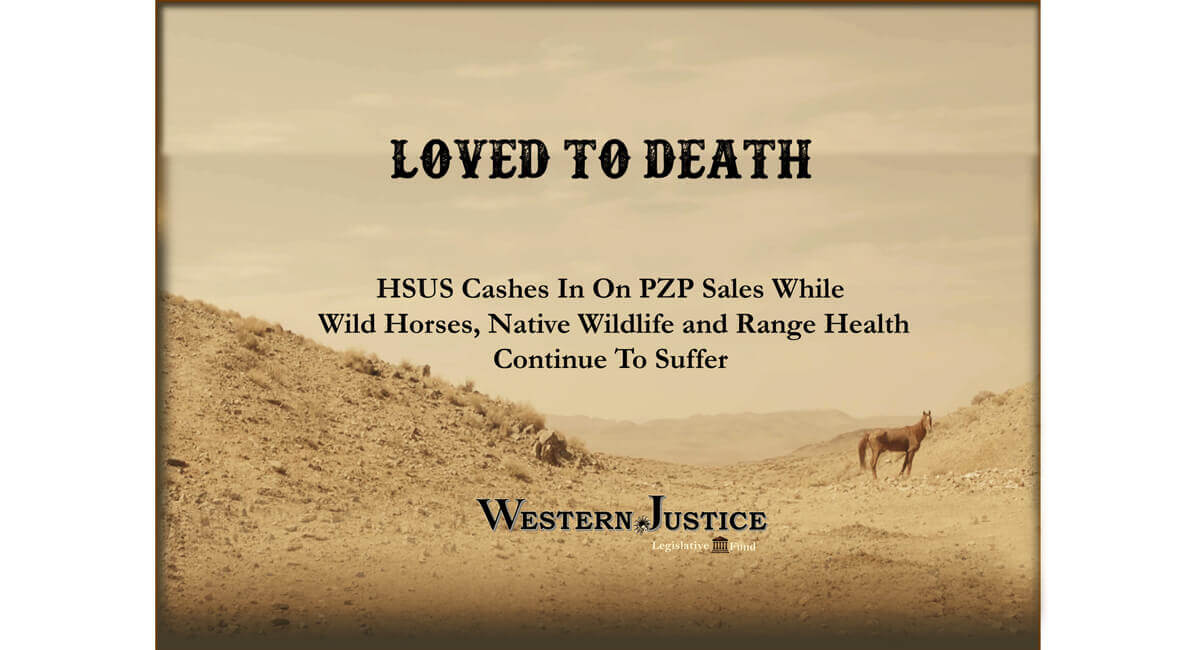Funding in the Bureau of Land Management’s (BLM) budget for wild horse roundups has been cut by $5.9 million, as part of the federal spending bill signed into law in early March 2024.
Ironically, this move came directly on the heels of a Nevada Wildlife Commission meeting and endorsement of a plan to bring Nevada’s wild horse populations down to legal appropriate management levels (AML). Nevada is home to the majority of the United States’ wild horses. Most recent BLM estimates show Nevada’s population of wild horses and burros at over 49,000. Other sources have stated that the BLM estimate is severely undercounted. AML is 12, 811; even with low population estimates, wild horse populations are still four times what they should be. The 1971 Wild Free-Roaming Horses and Burros Act mandates excess animals to be removed from the range, and yet this hasn’t been allowed to happen at the necessary levels for decades.
The move to cut round-up funding is of course being applauded by wild horse “advocacy” groups, who have worked to block effective management at every turn through litigation, claiming that helicopter gathers are inhumane. Nevada Congresswoman Dina Titus is currently sponsoring a bill that would entirely prohibit the use of helicopters in rounding up wild horses, despite the advice of wildlife and range experts.
Over the years, the direct result of their opposition to gathers has been the explosive growth of wild horse herd numbers, much to the detriment of range conditions. This negatively affects all other animals on the range, from domestic livestock to native wildlife. BLM lands are mandated to be multiple use, and yet rampantly overpopulated wild horses have been allowed to quite literally trample the resources that other on-range animals depend upon.
While removing funds for roundups, the spending bill allocated $11 million for fertility control which has been proven inhumane and largely ineffective at large scales. Wild horse “advocates” have celebrated this. They naively point to successful fertility control on small, isolated herds that are acclimated to humans and therefore tolerate the repeated darting necessary to administer the temporarily effective fertility control drug. It is logistically impossible to administer the drug to tens of thousands of wild mares ranging over hundreds of thousands of acres of rugged terrain—unless helicopters were employed. Even then, accurately documenting which mares had been treated and when would be impossible.
HSUS has historically advocated for the increase in fertility control measures on wild horses. To the unknowing public, this seems to simply align with HSUS’s definition of “humane.” The truth is that HSUS owns the patent on the fertility drug, known as PZP, and every time it is used, money flow into HSUS coffers.
At Western Justice, we understand the value of wild horses as part of western heritage, but firmly believe that, like all other uses of rangeland, wild horses need to be properly managed and maintained at appropriate management levels in keeping with the multiple use mandate for BLM lands.

News from the horse industry. Sharing today’s information as it happens. The Colorado Horse Source is not responsible for the content of 3rd party submissions.


